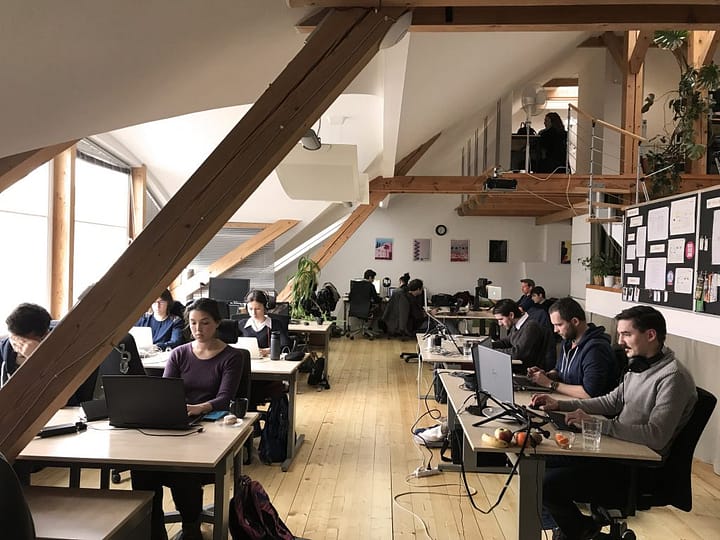Name: Guillaume Avond
Hometown: Montségur sur Lauzon, France
My name is Guillaume Avond and I’m a French Entrepreneur. I founded the Language Agency GAMA Study a year ago. I am now visiting Locus as part of the programme “Erasmus for Young Entrepreneurs”. This programme aims to help European entrepreneurs develop their business by gaining experience in another country and increase their list of contacts.
Hometown: Montségur sur Lauzon, France
Fun fact about hometown: Montségur sur Lauzon is a small village located in Provence in the South of France. Although it’s a tiny place (1200 people), we are the national Capital of Black Truffles, that very expensive mushroom.
Occupation: Entrepreneur
Field of study: Master’s Degree in Project Management and Web Development.
Did you already have an idea of what a coworking space was before you came to Locus?
Yes, as I am working remotely myself, and often changing location, I had interest in coworking spaces but never get the chance to work from an actual one. I used to work remotely from home and sometimes from cafés, but I think a coworking space is definitively the best option.
Why did you decide to do your training at Locus?
As I mentioned, I am at Locus as part of the programme “Erasmus for Young Entrepreneur”. Firstly I chose Prague as a destination because it is located in Europe with the same time zone as France, which is a good point for my job. The cost of life is also lower than in Western Europe. Finally I chose Locus because a coworking space was the ideal place for me to grow my business. They were looking for an entrepreneur with web development and community management skills, so we matched perfectly. J
What are some of your goals for your time at Locus?
On one side, I am here to help Locus to grow their online presence on social media and to finalise their new website.
On the other side, I am here to meet other entrepreneurs and freelancers, and enjoy the services of a great coworking space.
What do you do that allows you to be location independent?
I founded the agency GAMA Study last year. It is a language studies agency which helps students from all over the world book language courses at reduced prices.
Thanks to established partnerships with schools, we offer language training tailored to all clients, whether they are professionals, students, new entries to the job market, retirees, or groups, and for all budgets!
The job allows me to work remotely from everywhere in Europe.
How would you say that being location independent has changed your life?
It allows me much more freedom than I had before, with a fixed-location job. I can travel when I want, where I want, and I can settle in any country in Europe, as long as it is not too far from France in term of time-zone.
On the other hand, I also lost a bit of freedom in the evenings and on weekends, as I often need to work. I also need to be connected to the Internet all the time so I cannot go backpacking in exotic destinations anymore.
How many countries have you visited and which one did you like the most?
I have visited most of the countries in Europe as well as Peru, Bolivia, USA, Japan, South Korea, Taiwan and Hong Kong. It is hard to say which one was my favorite, but Bolivia and Taiwan are definitively on the top of my list because they are not so “touristy”. You can have a real adventure without being surrounded by thousands of tourists, and have the chance to order food without speaking a word of the language.
What are the biggest challenges you have faced living a nomadic lifestyle?
Changing cities is often a mess, as you need to find a new apartment, new friends, new activities, etc. It can be fun at the beginning, but after a while, I just wanted to stay in the same place for a longer period of time.
Do you think Locus Workspace is a good place for digital nomads?
Locus Workspace is the perfect size for a coworking place. Not too small, not too big. There is a real family atmosphere as most of the members know each other’s and often go to restaurants and have lunch together. As well, a large number of the members are not Czech and everybody speaks English here.
What is the best thing about working and living in Prague from a digital nomad’s point of view?
Prague is a great place for Digital Nomads. The quality of life is very high and the prices are low, especially for food and drinks. If your job allows you to get a good salary, you can live like a king here!
It is also a charming city, full of history but also nature with many parks around. Moreover, it is very safe and you can easily travel to other European countries from here!










